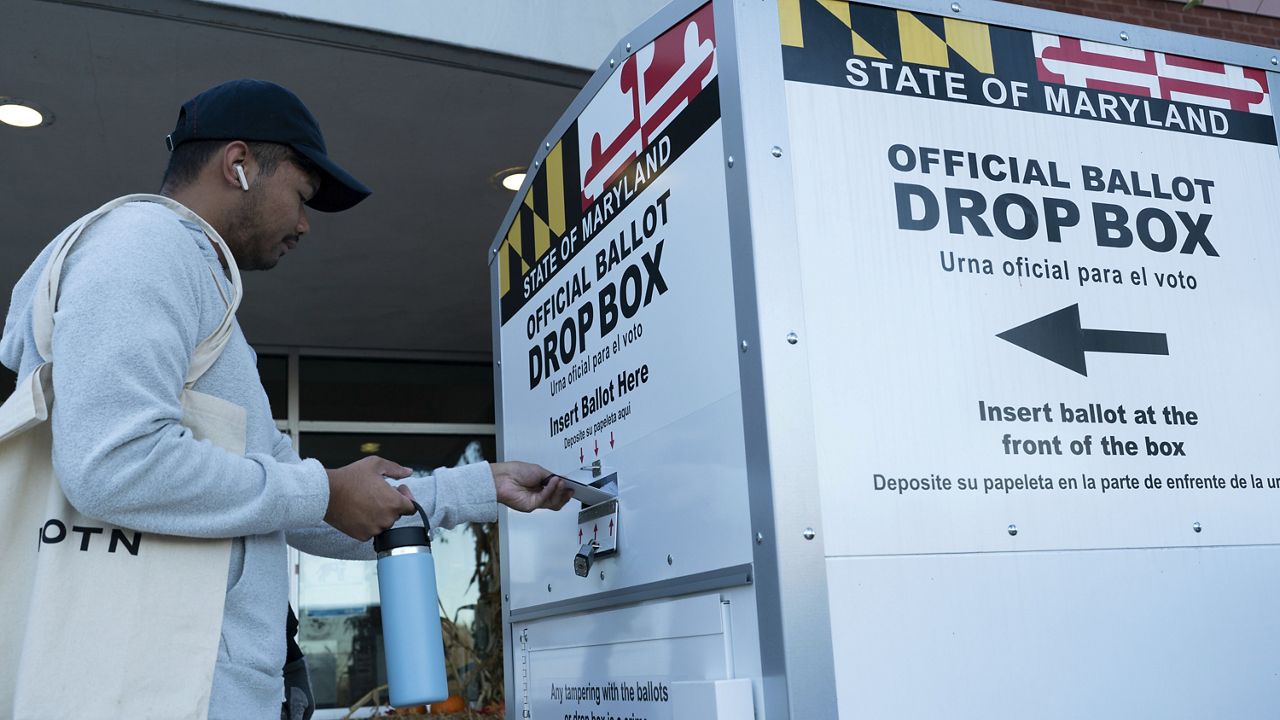A proposal to ban the use of 24-hour ballot drop boxes during Maine elections ran into a flood of opposition during a public hearing Wednesday at the State House.
The drop boxes are mounted outside municipal offices in cities and towns around the state and are used to collect absentee ballots so voters don't have to return them in person during business hours or stand in line at polling places on election days. They were first used as an emergency measure during the first year of the COVID-19 pandemic. A state law passed last year allows their continued use and most communities in the state now have them.
Sen. Eric Brakey, R-Auburn, wants to end their use, saying they are no longer needed and create security problems. But more than two dozen individuals and organizations spoke against the legislation, saying drop boxes provide a convenient and secure voting option that is especially valuable to older voters, people with disabilities and those who are not comfortable lining up at public polling places.
"Drop boxes were approved as an emergency measure yet here we are three years later and drop boxes are still being used," Brakey told members of the Veterans and Legal Affairs Committee.
Brakey said the boxes require election clerks, and in some cases law enforcement, to monitor them to prevent tampering. While they served a need in 2020, they now present unnecessary threats to the integrity of the election process, he said.
But Deputy Secretary of State Joann Bautista testified that drop boxes have not been a burden to election works and that they do not present any risk of voter fraud. They are very secure and ballots left in the boxes are screened and verified just like any other absentee ballots.
Bautista said she had heard allegations outside of Maine that ballot boxes were stuffed with large numbers of fake ballots. "That simply has not happened here in Maine and if it did we would know about it," Bautista said.
Bautista also dismissed Brakey's argument that private funding had been used to buy the drop boxes, saying the state provided all of the funding.
Numerous voters submitted testimony opposing the bill, saying the boxes make voting more accessible and convenient.
And voting rights advocates said passage of the bill would mean certain people, including older or disabled voters, would be less likely to participate in elections.
"In a democracy, voters get to choose the government. The government does not get to choose the voters," said Michael Kebede, policy counsel for the American Civil Liberties Union of Maine.
The use of ballot boxes has also been challenged in many other states.
Even before they were first widely used in the 2020 presidential election, former President Donald Trump and his allies argued that drop boxes would open the door to voter fraud. No widespread fraud occurred and election officials around the country said drop boxes were secure and did not contribute to voting irregularities. More recently, some Republican lawmakers in other states have targeted ballot boxes as part of their push to add new restrictions on voting.
Louisiana, Missouri and South Carolina are among the states that have passed laws effectively prohibiting drop boxes, The Associated Press reported. Last summer, the Wisconsin Supreme Court’s conservative majority ruled that drop boxes are not allowed under state law and can no longer be widely used, AP reported.
To get more news and information from this partner, subscribe here.



